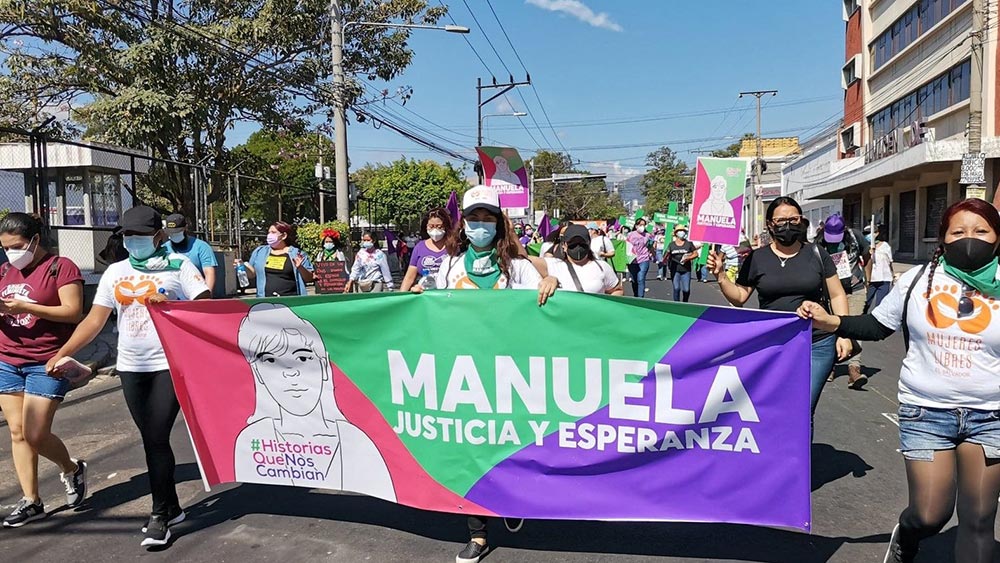
Photo credit: Colectivo Feminista 4
The International Human Rights Clinic at Santa Clara Law submitted an amicus curiae (friend of the court) brief (in Spanish) in the case of Manuela et al. v El Salvador before the Inter-American Court of Human Rights (“Court”), addressing the obligations that States have under international human rights law to respect the rights to privacy, health and equality before the law in the context of obstetric emergencies experienced by low-income women. In its recent judgment, the Court agreed.
El Salvador has one of the strictest abortion bans in the world. The United Nations Special Rapporteur on Violence Against Women and the United Nations Human Rights Committee have expressed concern about the severe criminal sanctions faced by women in El Salvador who undergo not only abortions but also spontaneous abortions or obstetric emergencies, recognizing that the total criminal ban on abortion in El Salvador has created a context in which low-income women appear to be frequently and disproportionately criminalized for experiencing obstetric emergencies. The United Nations Committee on Economic, Social, and Cultural Rights, the United Nations High Commissioner for Human Rights, the Organization of American States, and the Inter-American Commission on Human Rights have also raised similar concerns. Furthermore, the UN Human Rights Committee has expressed concern that it is primarily low-income women seeking treatment in public hospitals who face criminal sanctions under the abortion ban. These women often face criminal charges not only for the crime of abortion, but also for the more serious crime of “aggravated homicide,” which has led Salvadoran courts to impose disproportionate sentences of up to 40 years in prison in cases such as Manuela’s, where doctors denounced the suspicion that an abortion occurred despite evidence that the accused women instead suffered miscarriages or obstetric emergencies.
The Clinic’s brief was drafted by law students Nicole Dow, Ariel Fields, and Jacquelyn Silva, under the supervision of volunteer attorney Britton Schwartz and Prof. Francisco Rivera. In the brief, the Clinic asks the Court to declare that El Salvador in in violation of the human rights to equality before the law, to maternal and reproductive health, and to privacy, particularly with regard to arbitrary restrictions on doctor-patient confidentiality. The Clinic asked the Court to implement protections against the criminalization of obstetric emergencies and to create clear guidelines to protect the inviolability of doctor-patient confidentiality against unlawful pressure to report patients for suspected abortions.
The Court’s recent judgment can be found here. The Clinic’s brief can be found here.